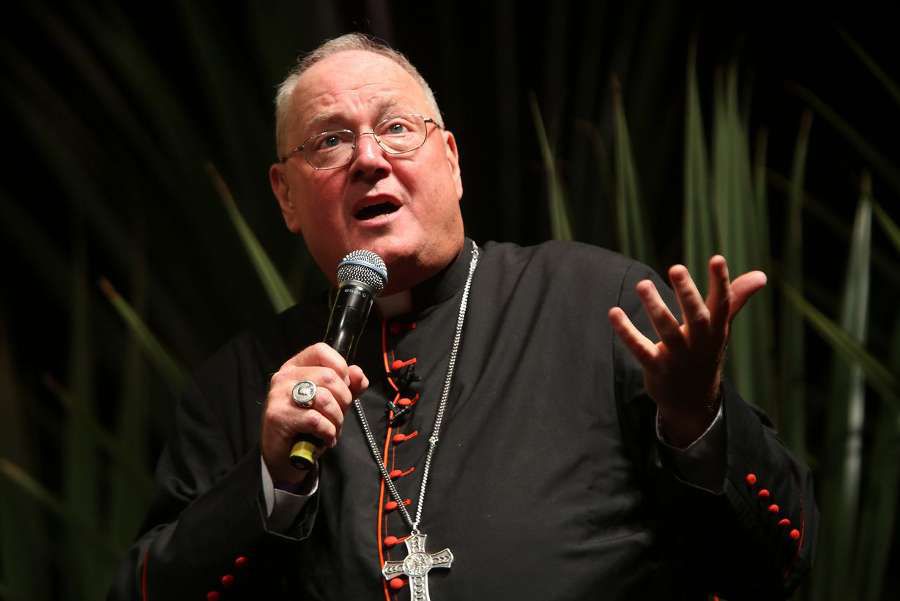New York City, N.Y., Nov 23, 2016 / 12:54 am (CNA/EWTN News).- As the push for physician-assisted suicide continues throughout the country, Cardinal Timothy Dolan of New York is asking the faithful to step up in opposing anti-life measures.
“Catholics must join medical professionals, disability rights groups, and other concerned citizens in fighting for the authentic care of those facing terminal illness,” he said.
The cardinal, who heads the U.S. bishops’ committee for pro-life activities, reflected on recent ballot measures and legislative acts permitting assisted suicide. “Seven jurisdictions in the United States have now opened the legal door to this dangerous abuse of medicine, an alarming trend that must be stopped for the sake of human dignity and the sacredness of life,” he said, adding that “doctor-assisted suicide must now be opposed with renewed vigor.”
Legislatures in Oregon, Washington, California, and Vermont have legalized assisted suicide, as has the Montana Supreme Court. On Election Day this year, voters in Colorado approved a ballot measure to legalize the practice. And a few weeks ago, the Washington D.C. city council passed a similar bill, although it will need to be approved by Congress in order to take effect.
The D.C. proposal, Cardinal Dolan warned, “is the most expansive and dangerous so far. It goes beyond assisted suicide by allowing third parties to administer the lethal drugs opening the door even further to coercion and abuse.” “Every suicide is tragic, whether someone is young or old, healthy or sick,” the cardinal emphasized. “But the legalization of doctor-assisted suicide creates two classes of people: those whose suicides are to be prevented at any cost, and those whose suicides are deemed a positive good.”
“We remove weapons and drugs that can cause harm to one group, while handing deadly drugs to the other, setting up yet another kind of life-threatening discrimination,” he continued. “This is completely unjust. Our inherent human dignity does not wane with the onset of illness or incapacity, and so all are worthy of protection.”
Critics of assisted suicide warn that legalizing the practice sends a dangerous social message that suicide is an acceptable way to handle pain and suffering, particularly at a time when some areas of the country face epidemic levels of teen suicide. Disability rights groups have also been vocally opposed to so-called “death with dignity” bills, saying that they discriminate against the disabled and can pressure them to end their own lives.
Furthermore, studies have shown the majority of patients who request assisted suicide will withdraw that request when they are treated for depression. Many proposed assisted suicide bills do not screen for depression or require treatment for it before deadly drugs are administered. Opponents of assisted suicide measures have also cited abuses in areas where the practice is legal.
Parts of Europe that legalized assisted suicide years ago have now moved to involuntary euthanasia, where it is not the patients themselves, but family members or doctors who decide when they should be killed. In several cases in the U.S., patients have been denied chemo treatment, but instead offered lethal prescriptions, because it is cheaper for the insurance company. There have also been reports of pills changing hands, either intentionally or unknowingly, with lethal results.
In his statement, Cardinal Dolan stressed that prescribing a fatal dose of poison “undermines the very heart of medicine,” particularly since doctors make a vow to “do no harm” to patients. “What seriously ill — and often depressed — patients need is authentic support, including doctors fully committed to their welfare and pain management as they enter their final days,” he said.
Calling for patients to receive reassurance that they are not a burden, the cardinal said that they must be shown that “it is a privilege to care for them as we ourselves hope to be cared for one day.” “A compassionate society devotes more attention, not less, to members facing the most vulnerable times in their lives.”

